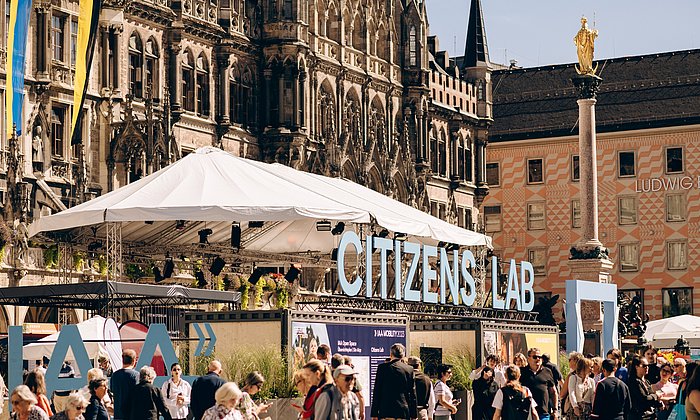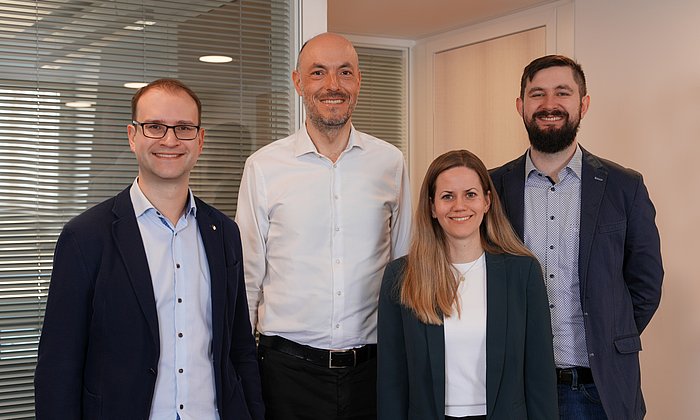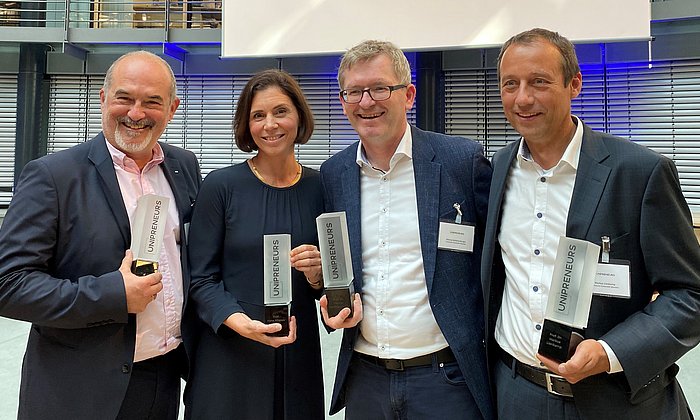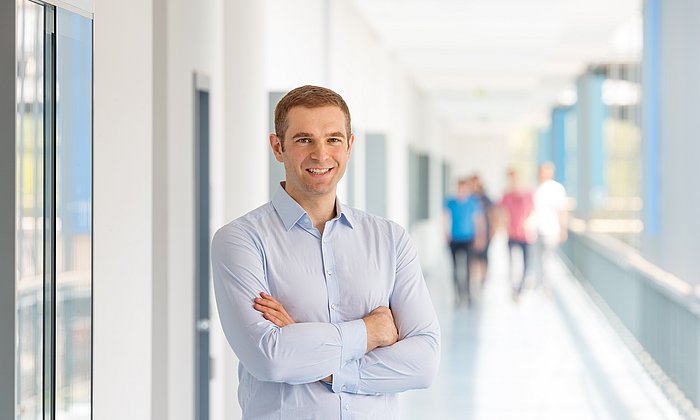TUM IDEAward presented to three founder teams
Start-up ideas with a sustainable impact
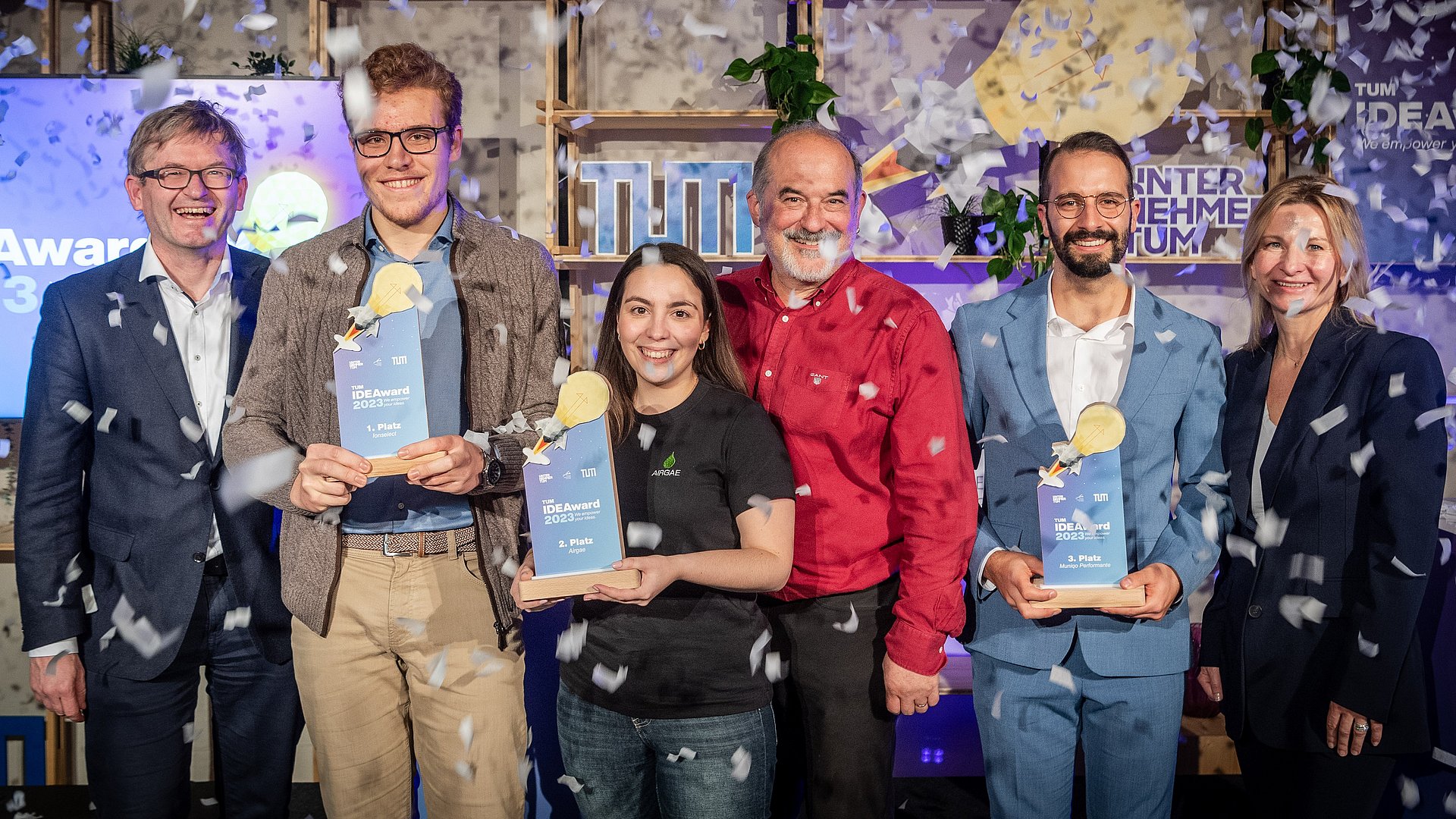
Which idea could be translated into a successful product? Which team of founders is tackling key challenges facing society? And which start-up is set to create sustainable added value in the future?
Ten teams aspiring to launch a start-up presented their ideas to the audience at the final of the TUM IDEAward. For the first time, more than half of the teams in the final were represented by women.
The best ideas were selected by TUM, UnternehmerTUM and the Zeidler-Forschungs-Stiftung, which provided prize money totaling 37,500 euros. The winning teams will also benefit from tailored coaching from TUM Start-up Consulting, guiding them on the path to market entry.
1st place: IONSELECT
Regulations surrounding the use of liquid manure as a fertilizer have been tightened in recent years, primarily to protect the groundwater. Farmers are required to send their fertilizer for laboratory testing to determine its nutrient content. This process is time-consuming and often imprecise, because the composition of lab samples can differ from that of the fertilizer overall. The IONSELECT team are therefore developing a new tool to determine the nitrogen, phosphorus and potassium levels in fertilizer. It is designed to measure manure composition in real time during spreading and automatically adapt the fertilizer quantity as needed. It could also be able to transmit this data to the authorities, which relieves the burden on farmers. Chemistry students Alessandro D’Amanzo, Matthias Rosenow, Sebastian Karl Schaeffer and Timo Vladimirskij hope their idea can contribute to sustainable, high-precision agricultural practices.
2nd place: Airgae
The environmental footprint of aquacultures has long been a subject of debate. The team at Airgae are now developing a bioreactor to produce microalgae that can serve as a source of food for fish in aquacultures. The technology is also designed to make fish farming more sustainable by making use of the wastewater from aquacultures, which is purified by the algae. The team plan to use 3D printing to produce their bioreactor to keep its purchase price as low as possible. In addition to developing the reactor, biochemistry student Olesia Omelko and management students Kaung Myat and Andrea Vazquez Perez are working to identify highly efficient strains of algae.
3rd place: Muniqo Performante
The Muniqo Performante team have set their sights on making driving and cycling more comfortable with a new generation of shock absorbers. The founders are developing a damping system that relies solely on magnetism. It is also designed to recover kinetic energy, which means it saves energy rather than converting it to thermal energy like conventional systems. Luca Fabiano (biomedical engineering and medical physics) and Sebastian Wann (automotive engineering) also aim to ensure compact installation in vehicles and virtually wearless, maintenance-free functioning.
Every year around 70 technology-oriented companies are founded at TUM – at the center of one of Europe’s most innovative deep tech ecosystems. TUM and UnternehmerTUM, Center for Innovation and Business Creation, provide programs tailored to the various phases of building a business – from creating the business model to management training, and from market entry to a possible IPO. The TUM Venture Labs offer an entire research ecosystem for start-up teams working in important scientific fields. Up to 30 teams can use the TUM Incubator to prepare for the launch of their companies. Through its own venture capital fonds , UnternehmerTUM invests in tech companies displaying strong potential. Meanwhile, with MakerSpace, it provides a 1500 square meter high-tech prototype workshop.
Technical University of Munich
Corporate Communications Center
- Klaus Becker
- klaus.becker@tum.de
- presse@tum.de
- Teamwebsite
